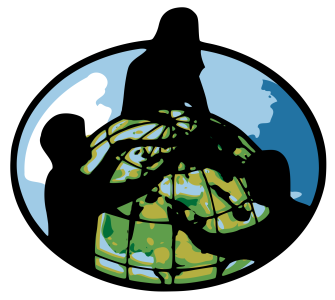The diner was crowded for a Thursday afternoon, though I suppose it is summer break. As soon as I step in, I saw two of my students, sitting at a booth, waiting for me.
I took a breath.
This summer, I have admittedly been taking it slow, so I was thrilled last week when a student mentioned that he wanted to have lunch and talk story with me (which I wrote about on my personal site). We sat down and chatted. My student, Reed, who is half-Black and half-White in a state where less than 3% of the population is Black (via Census.gov), talked about the difficulties of finding your place, culture, and self when, frankly, you’re the only one of you around.
It was a great conversation, so when he asked if we could talk again and he could bring along another student I adore, Christian, I was eager.
Then, the deaths of Alton Sterling and Philando Castile happened.
Obviously, I was (and always am) eager to spend time with my students. Still, I didn’t know how the recent news would affect them. I didn’t know what they might need from me to help them process, heal, or feel safe. I both was desperate to try and help, but also concerned that I wouldn’t be able to give them what they needed.
We greeted each other, sat down, and made some small talk. Finally, I asked, “So, how are you doing? Especially with all the stuff happening on the mainland?”
Reed looked across the table at me, and flashed a small smile. “Oh, I’m fine,” he said. “I refuse to live my life in fear.”
And with that, I realized that my students nearly always give me what I need, and not necessarily the other way around.
Of course, I know it’s not that Reed walks through the world blind to its issues, nor do I believe he is never scared (we’re all scared sometimes). What he made me remember, however, is that there is a brilliant light that glows in him and all of our students. Many of us lose the ability to see it-- our personal biases, the lies society tells us about each other, our own desire for power get in the way-- but it doesn’t change the fact that it shines in spite of us.
The question we have to ask ourselves, as educators, is do we see and acknowledge their light? As José Vilson noted recently, the kids can read us. Do we recognize their brilliance? Do we encourage them to see the brilliance in others? Are we building that kind of love, empathy, and validation not just for themselves, but for others, in our classrooms?
Because here’s the thing: I don’t think anyone is born wanting to kill or hurt others. I think that the world is hard place sometimes, and when that is coupled with a system that teaches us to see each other as power strata instead of people, we end up with a violence and hatred for each other that seems unimaginable, but is really created by our own society in the first place.
I had a long talk with both boys about these issues, and I took away two key things. First, part of what they feel is that their generation has a far better understanding of these problems than the ones before it. They are, honestly, just waiting for us to get out of their way. I don’t blame them.
When I asked what those in the older generation who do get it can do, they both were thoughtful.
“Tell them to talk more about it!” Reed exclaimed. “They need to talk to the people in their generation to get them to understand.”
“And they need to talk with their kids about it,” Christian agreed.
“Yeah, they need to pass on their own understanding so that their kids don’t get influenced by hatred and all the other things out there,” Reed continued.
When I heard the news from Dallas later that evening, I was tempted to crawl into bed, give up, and be done with it. Reed and Christian’s faces popped up in my mind, though, and their voices rang in my ears: “talk about it.”
So, we must keep talking. We must keep making space and paths for our students to be brilliant and make change. I honestly think it is at the forefront of what could save us from ourselves. This is the advice I needed, from the mouths of babes.

Some Resources About Discussing This Week’s Deaths with Students
- Teaching Tolerance’s Guide to Talking about Racism and Police Violence
- Nate Bowling‘s “A Syllabus for Students When Dealing with Law Enforcement.”
- Today’s “How to talk to children about shootings: An age-by-age guide.”
Note: if you have more resources, I’d love to share them. Put them in the comments.


